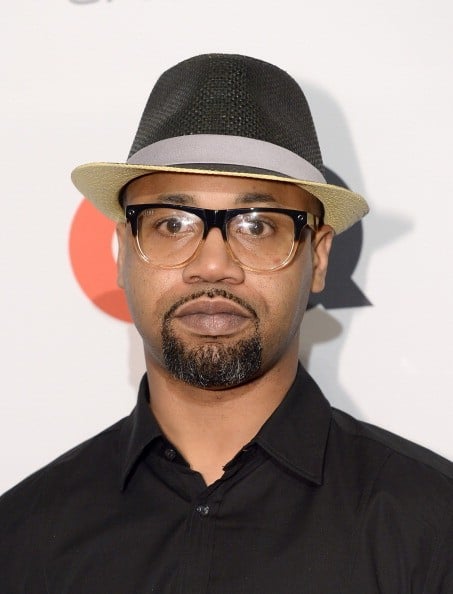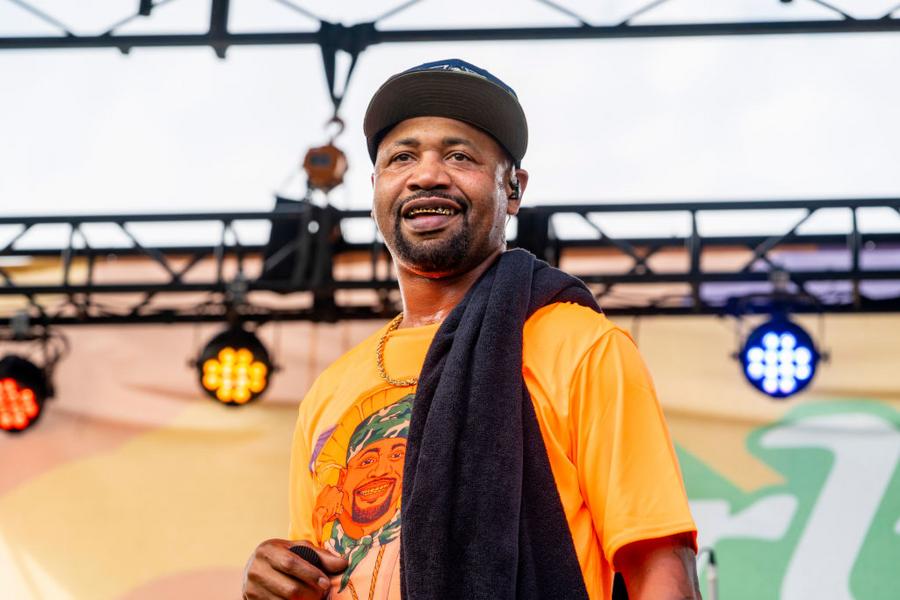Juvenile at a Glance
- Categories: Celebrities, Celebrities > Rappers
- Net Worth: $500 Thousand
- Birthdate: Mar 25, 1975 (49 years old)
- Birthplace: New Orleans
- Gender: Male
- Profession: Songwriter, Actor, Rapper, Musician
- Nationality: United States of America
- Height: 6 ft (1.83 m)
Juvenile’s Net Worth: A Look at the Rapper’s Career and Finances
Early Life and Rise to Fame
Terius Gray, better known to the world as Juvenile, is a prominent American rapper and producer hailing from the vibrant streets of New Orleans, Louisiana. Born on March 26, 1975, Juvenile’s upbringing in the Magnolia Projects profoundly shaped his musical journey. His introduction to music began early, with the rhythmic pulse of the city’s unique sound serving as his foundation.
In 1995, Juvenile embarked on his professional career, signing with Warlock Records and releasing his debut album, “Being Myself.” While the album gained traction within local circles, it didn’t achieve widespread national recognition. However, it did lay the groundwork for a more significant deal with the burgeoning Cash Money Records. This move proved pivotal, setting the stage for Juvenile’s ascent in the rap industry.
His early success, though regional, was significant enough to secure him a deal with Cash Money Records. This marked a crucial turning point in his career, allowing him to collaborate with other artists and develop his signature sound, a blend of gritty lyrics and the unique “bounce” style of New Orleans hip-hop.
400 Degreez and Mainstream Success
Juvenile’s career truly exploded with the release of his third studio album, “400 Degreez” in 1998. This album, released under Cash Money Records’ joint distribution deal with Universal Records, received extensive national promotion. The singles “Ha” and “Back That Azz Up” catapulted Juvenile into mainstream recognition, both charting on the Billboard Hot 100 and the Hot R&B/Hip-Hop Songs chart. The album’s success was further amplified by its widespread appeal and Universal’s promotional efforts, eventually earning a 4x Platinum certification from the RIAA. “400 Degreez” remains Juvenile’s best-selling album to date, a testament to its enduring impact on hip-hop culture. Interestingly, the popularity of “Back That Azz Up” sparked a legal dispute with fellow New Orleans musician DJ Jubilee, who claimed the song sounded similar to one of his own tracks. However, the United States Court of Appeals for the Fifth Circuit eventually dismissed the case in January 2005.

Michael Loccisano / Getty Images
Capitalizing on his newfound fame, Juvenile re-released his debut album, “Being Myself”, in 1998, along with a reissue of “Solja Rags”. In 1999, the second Hot Boys album, “Guerrilla Warfare”, was released and certified Platinum. While subsequent solo albums like “Tha G-Code” (1999) and “Project English” (2001) reached the Top 10 of the Billboard Hot 200 and achieved Platinum status, they didn’t replicate the monumental success of “400 Degreez.”
UTP Records and Later Career
Besides his solo work, Juvenile remained an influential figure in hip-hop. He collaborated with numerous artists and released music consistently into the 2010s and beyond, cementing his status as a respected veteran of the rap industry. In addition to his own music, Juvenile co-founded UTP Records with his manager, Aubrey “Pied Piper” Francis, and his brother, Corey, further expanding his influence within the music industry.
His discography continued to grow with albums like “Juve the Great” (2003), which also achieved Platinum status, “Reality Check” (2006), “Cocky & Confident” (2009), “Beast Mode” (2010), “Rejuvenation” (2012), and “The Fundamentals” (2014). He also collaborated with The Hot Boys on their third and final album, “Let ‘Em Burn” (2003), contributing to their legacy in the genre.

(Photo by Erika Goldring/Getty Images)
Legal and Financial Challenges
Like many public figures, Juvenile has faced various legal and financial challenges throughout his career. In 2002, he was arrested for assaulting his barber, a dispute stemming from allegations of the barber bootlegging his music. The following year, Juvenile faced drug charges in New Orleans. He also served 75 hours of community service after a fight outside a Miami, Florida nightclub in 2001.
Furthermore, Juvenile was involved in a legal battle over unpaid child support to his ex, Joy Deleston. After a DNA test confirmed his paternity, the case was resolved peacefully in 2006. However, in 2017, he was arrested for failing to pay $150,000 in child support debt to Dionne Williams, having been arrested for the same issue in 2013. These incidents highlight the complexities and responsibilities that come with fame and fortune, underscoring the importance of financial management and responsible conduct.
Personal Life and Tragedy
Juvenile is married to Shadonna Jones, and the couple has been together since 2003. Before his marriage, Juvenile had a relationship with Joy Deleston, with whom he had a daughter, Jelani. A profound tragedy struck in February 2008 when Deleston, Jelani, and Deleston’s older daughter, Micaiah, were tragically shot and killed in their home. Jelani was only four years old at the time. Deleston’s oldest child, Anthony Tyrone Terrell Jr., was charged with the murders and received two consecutive life sentences after pleading guilty. Juvenile chose not to attend the funeral, out of concern that his presence would overshadow the ceremony. He also has a son from his previous relationship with Dionne Williams, demonstrating the complexities of his personal life beyond his music.
/**/
Juvenile’s Net Worth
As of the latest estimates, Juvenile’s net worth is approximately $500 thousand. His income stems from his music career, including album sales, streaming royalties, live performances, and his entrepreneurial ventures. Despite facing various legal and financial challenges throughout his career, Juvenile has maintained a significant presence in the music industry. The success of his albums, particularly “400 Degreez,” and his continued relevance have allowed him to sustain his net worth over the years, while remaining a respected figure in the world of hip-hop.
Conclusion
Juvenile’s career is a testament to the impact of hard work and talent in the music industry. From his humble beginnings in New Orleans to his mainstream breakthrough, Juvenile has created a lasting legacy in hip-hop. While facing personal and professional challenges, he’s maintained a significant presence in the music scene. His story exemplifies resilience, creativity, and the ever-evolving dynamics of the music industry.

